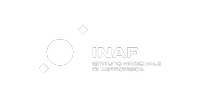FORNAX
FORNAX - Galaxy evolution in dense environments
Abstract: The Universe around us is populated with galaxies, each containing from millions to tens of billions of individual stars. Far from being immutable, galaxies undergo profound changes as they age. Their evolution depends on their position in the cosmic web, a network of sheets and filaments of matter that stretches across the entire Universe.
The goal of FORNAX is to study the evolution of galaxies in the densest regions of the cosmic web, galaxy clusters.
In these regions, a number of physical processes are thought to make galaxies lose their cold gas – the material from which new stars are born – and change their appearance dramatically. I will study these processes in action by observing the flow of cold gas in and out of galaxies living inside an important, nearby cluster of galaxies: Fornax.
I will observe Fornax for 2,450 hours with MeerKAT, a new, state-of-the-art radio telescope precursor of the Square Kilometre Array. Thanks to the unprecedented combination of sensitivity, resolution and sky-coverage of my survey, I will reveal the most subtle signs of the removal of gas from galaxies, I will detect the smallest gas-bearing galaxies in the cluster, and I will hunt the elusive cold gas which, according to cosmological theories, floats in the space between galaxies along the filaments of the cosmic web.
 FORNAX has received funding from the European Union's Horizon 2020 research and innovation programme under grant agreement No 679627.
FORNAX has received funding from the European Union's Horizon 2020 research and innovation programme under grant agreement No 679627.
Dettagli tecnici
PI: Paolo Serra
Struttura INAF: OA Cagliari
Bando: ERC-2015-STG
Riferimento contratto n. 679627
Inizio: 01/10/2016
Durata: 60 mesi

